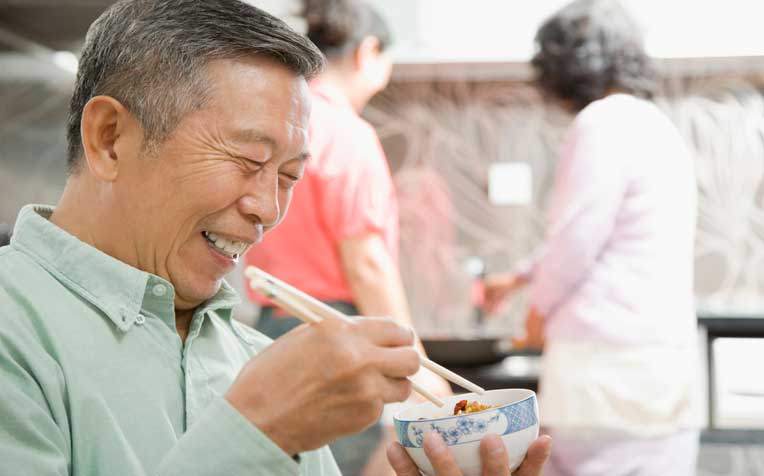HealthXchange will NEVER ask you to transfer money over a call. If in doubt, call the 24/7 ScamShield helpline at 1799, or visit the ScamShield website at www.scamshield.gov.sg.

Get sufficient and proper nutrition in order to recover faster.
For older people recovering from a debilitating illness, getting back on their feet can take longer if they are malnourished
A new research study by Singapore General Hospital’s (SGH) Department of Dietetics suggests that malnourishment in elderly patients is linked to longer hospital stays and a poorer ability to regain functional independence. Functional independence is a measure of physical and cognitive disability, and uses 18 items of ability such as walking, feeding and dressing.
The research is significant because more than half of the 109 SGH rehabilitation patients under study were found to be malnourished to some extent. The men and women in the study had an average age of 69 years, and were admitted to the SGH rehabilitation ward at Bright Vision Hospital (BVH) for continuing care after being treated at SGH in Outram Road for conditions such as stroke, hip fracture, or brain or spinal injuries. Many were elderly; the oldest patient in the study was 94, although the youngest was 20.
Getting proper nutrition in old age is vital for fast recovery
These patients who were under acute care for a serious illness at SGH might not have eaten as well as they should because of their condition. So by the time their condition had stabilised and they were ready to be transferred to a rehabilitation ward for longer term convalescence, they might have become undernourished.
Dietitian Yang Jie, the lead investigator of the study, known as the Nutritional Status of Hospitalised Rehab Patients, said the findings supported the observations that she and her colleagues had made about these patients.
Others behind the study include Dr Loh Yet Hua, Head, Department of Dietetics; Mr Tan Lee Boo, Senior Principal Dietitian; and Dr Ng Yee Sien, Senior Consultant and Head, Department of Rehabilitation Medicine, Singapore General Hospital (SGH), a member of the SingHealth group.
“In general, a patient who comes in with normal nutrition does better. They are usually not as sick as those who are severely malnourished and tend to recover and improve faster,” Ms Yang said. Ms Yang presented the team’s findings from the study at the 7th World Congress of the International Society of Physical and Rehabilitation Medicine (ISPRM) in Beijing in 2013.
Read on to find out how malnourishment in the elderly is diagnosed and tips to cope. Ref. R14
Contributed by
Conditions & Treatments
Public Events
Get the Health Buddy App
© 2025 SingHealth Group. All Rights Reserved.














 Get it on Google Play
Get it on Google Play